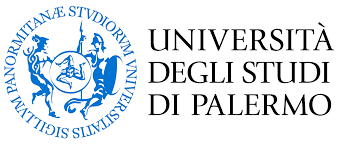
Problematizing Migration: Mobility and Vulnerablization in an Age of Abandonment and Inequalities
Call for papers
Problematizing Migration: Mobility and Vulnerablization in an Age of Abandonment and Inequalities
University of Palermo, Palermo, Italy
Department of Cultures and Societies
International Conference
17th, 18th, 19th July, 2023
Building 15 (Edificio 15), Viale delle Scienze, Palermo
Room 807, 8th Floor
Deadline for abstracts: May 30th, 2023
The need to problematize migration has never been more urgent. Pervasive austerity policies have, unsurprisingly, been unable to achieve their stated aims of stopping immigration. Instead, they have systematically under-resourced migration infrastructure and implemented policies and programs that increasingly isolate newcomers and remove or further complicate paths to inclusion. As a result, social relations beyond the state have become increasingly important as both an alternative and necessity to survive state abandonment and vulnerablization. Thinking from these relations offers the opportunity to simultaneously provincialize the state and offer a finer-grained account of the violence, predation, inclusions, and possibilities at its margins, frontiers, and outsides. This conference aims to bring together diverse perspectives that dwell in the particular, think through the specific, and offer thick description of migration between state and non-state life. Our focus departs from this vital space of contestation. When states deal with migration, they rely on constructing and reproducing regimes of classification. These can be both juridical dichotomies - like those between citizen and foreigner, economic migrant or political refugee, regular and irregular, or criminal and victim - and more qualitative assessments - like those between deserving and undeserving, familiar and strange, or trustworthy and suspect. Meanwhile, the state’s abstract categories are always in contrast with the much more ambiguous complexity of social relations. Understanding contemporary migration requires attention to the way state and non-state, or with more nuance state-like and state-dislike (Scheele 2021) relations and institutions are not separate, but entangled fields of relations that interact through moments of subsumption, symbiosis, subversion. We invite submissions that analyze the entanglement of official classifications and life-as-lived in the context of migration and human mobility. What happens to practices, poetics, and grammars of migration at points of encounter between state and non-state relations? Authors across disciplines and those outside of academic institutions (eg, but not limited to: activists, artists, etc.) are encouraged to submit and the organizers are committed to hosting work that contends with the topic across multiple modalities and methods. Some possible subjects:
• Migrations and policies
• Public / private narratives about migrations
• Migrations and legality/illegality dynamics
• Methodological challenges in migration research
• Migration, race, and capitalism
• Predatory bureaucracy, inequality, and austerity
• Violence, death, and the aesthetics of migration
• Affect and intimacy in migration encounters
• Migration, fascism, and anti-fascism
• Migration, gender, sexuality, and queerness
• Continuity and discontinuity in forms of violence and hierarchy
• Everydayness and spectacle in the representation of migration
• Contacts / conflicts between migrant communities
• Migrations and hybridization of identity
• Symbolic, real or virtual migrations
• Cities, narratives and migrants
• Migrants in documentaries and visual representation
• Migrations and Social Science epistemology
• Rites of modernity and migrant cultures
• Sustainability and resilience in migrations
• Colonialisms and imperialisms in migration dynamics
• Spaces, migrations and literary forms
Modalities of participation and deadline:
Send abstracts by May 30th, 2023 to Stefano Montes (stefano.montes@unipa.it), Jacob Bessen (jacob.bessen@mail.utoronto.ca) or Gaetano Sabato (gaetano.sabato@unipa.it). Abstracts, max 300 words, include title, 3 key-words and a short biography (max 5 lines, not to be counted among the 300 words). Applicants will be notified by June 10th. The conference will take place, in-person, in Palermo. Admitted languages are English, Italian, French and Spanish. Each speech is 20 minutes. Registration to the Conference is free of cost. Grants are not foreseen. Travel, accommodation and food costs are to be covered by participants.
Scientific board:
Naor H. Ben-Yehoyada, Columbia University, USA
Jacob Bessen, University of Toronto, Canada
Massimo Canevacci, University of Rome “La Sapienza”, Italy
Marina Calogera Castiglione, University of Palermo, Italy
Vincent Crapanzano, Graduate Center of the City University of New York, USA
Cristiana Giordano, University of California, Davis, USA
Shahram Khosravi, Stockholm University, Sweden
Giorgia Mirto, Columbia University, USA
Stefano Montes, University of Palermo, Italy
Valentina Napolitano, University of Toronto, Canada
Gaetano Sabato, University of Palermo, Italy
Organizing committee:
Jacob Bessen, University of Toronto, Canada
Giorgia Mirto, Columbia University, USA
Stefano Montes, University of Palermo, Italy
Gaetano Sabato, University of Palermo, Italy